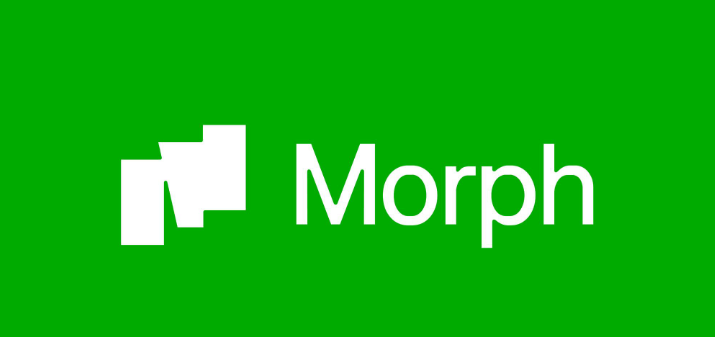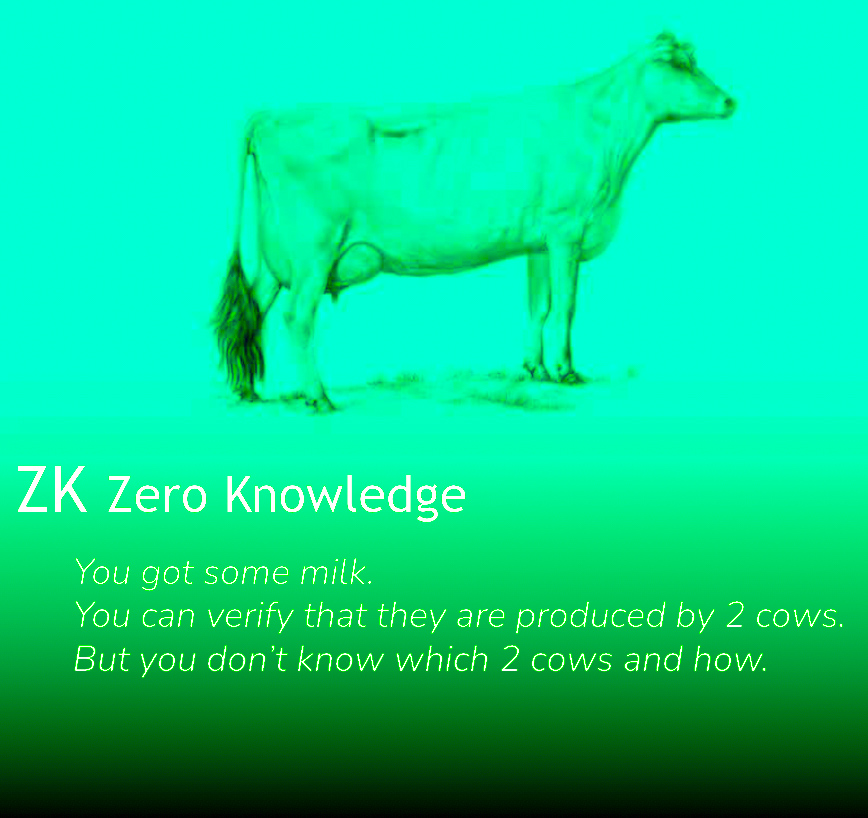Understanding Zero-Knowledge Proofs (ZKPs) with Morph: Powering the Future of Blockchain Security
 Daniel Kambale
Daniel Kambale
Blockchain technology has evolved rapidly over the past decade, and with it, the challenges of scalability, security, and decentralization have come to the forefront. One of the most promising solutions to these issues is the implementation of Zero-Knowledge Proofs (ZKPs). In this blog, we’ll explore how Morph leverages ZKPs to enhance both privacy and security on its Layer 2 (L2) rollup solution while maintaining scalability and user experience.
The growth of decentralized applications (dApps) and increasing transaction volumes on popular blockchains like Ethereum have highlighted the need for more efficient solutions. As blockchain adoption expands, network congestion and high gas fees have become significant barriers to user experience and mass adoption. Morph’s Layer 2 rollup provides a much-needed answer by offloading transaction data from the main chain while ensuring faster, cheaper transactions without sacrificing security or decentralization.
However, as more users and businesses rely on blockchain technology, privacy concerns continue to rise. Traditional blockchain networks, while secure, are inherently transparent, which may not be suitable for every use case. Users’ transaction details and wallet addresses are visible to the public, raising questions about confidentiality. This is where ZKPs become pivotal, enabling Morph to offer a solution that preserves user privacy by verifying transactions without revealing sensitive information, and ensuring confidentiality without compromising security.
What Are Zero-Knowledge Proofs (ZKPs)?
A Zero-Knowledge Proof is a cryptographic method that allows one party (the prover) to prove to another party (the verifier) that a statement is true without revealing any details about the statement itself. This technology can ensure data privacy while validating the truthfulness of transactions or computations.
Imagine you want to prove that you know the solution to a puzzle without revealing the solution itself. A ZKP allows you to do just that — confirm that you possess the correct answer without giving away any information beyond that. In the context of blockchain, ZKPs provide a way to verify transactions without exposing sensitive details, offering both security and privacy.
You’ve Got Milk, But From Which Cow? The Fun Side of Zero-Knowledge Proofs

To make things even clearer, let’s think of it this way: Imagine you have a glass of milk. You know that it came from two cows, and you can verify that the milk is genuine. However, what you can’t do is identify which two cows produced the milk or exactly how the milking process took place.
In the same way, Zero-Knowledge Proofs allow us to verify that something is true (like the fact that this milk is fresh and real), without revealing the underlying details (which cows made the milk).
Now imagine you're at a fancy milk-tasting competition and a cow whispers in your ear, "Hey, you’ve got the freshest milk!" but refuses to tell you which farm it came from. That’s Zero-Knowledge Proofs in action: you get the confidence that the milk is fresh, but you don’t get bogged down by the specifics of the cow's life story.
This might sound absurd (and funny!), but in the world of cryptography, it’s a game-changer! You can now verify transactions, authenticate credentials, and even ensure privacy—all without revealing the details you’d rather keep secret.
So, next time you’re drinking a glass of milk, remember—you might just be participating in a Zero-Knowledge Proof!
The Role of ZKPs in Blockchain
As blockchains like Ethereum continue to grow, the need for enhanced privacy and efficient verification mechanisms becomes critical. The use of ZKPs enables Layer 2 rollups like Morph to compress transaction data while maintaining the verifiability of the state. This mechanism ensures that the blockchain can process more transactions per second, reduce gas fees, and improve scalability, all while safeguarding privacy.
ZKPs offer an advantage in two main areas:
Scalability: By minimizing the data that needs to be shared and verified on-chain, ZKPs allow Layer 2 solutions like Morph to process transactions more efficiently.
Security: Because ZKPs do not require the exposure of sensitive information, they enhance security by minimizing attack vectors and reducing the risk of data breaches.
How Morph Utilizes Zero-Knowledge Proofs
Morph, as a Layer 2 blockchain built on Ethereum, integrates Optimistic zkEVM Rollups. This hybrid approach merges optimistic rollups (which assume transactions are valid unless challenged) with zero-knowledge proofs (which mathematically verify the validity of each transaction). This combination allows Morph to achieve both high throughput and robust security, solving the Blockchain Trilemma of balancing decentralization, security, and scalability.
Let’s break down how Morph’s architecture employs ZKPs:
Transaction Compression: Instead of posting every transaction in full detail to Ethereum’s Layer 1, Morph compresses transactions using ZKPs. This means that while fewer details are stored on-chain, the integrity of each transaction is preserved.
Validation without Exposure: Morph’s zkEVM (Zero-Knowledge Ethereum Virtual Machine) can validate state transitions—such as changes in account balances or smart contract execution—without exposing the underlying data. This ensures that sensitive information remains confidential while maintaining trust in the network’s security.
Efficient Finality: By leveraging ZKPs, Morph can provide fast transaction finality. While optimistic rollups may face delays due to fraud-proof windows, zk-rollups finalize transactions almost instantly, with validity proofs generated and verified rapidly.
Why ZKPs Matter for Users
For end users, ZKPs within Morph’s ecosystem translate to:
Lower Transaction Costs: With ZKPs, fewer data are stored on-chain, reducing the gas fees associated with transactions.
Increased Privacy: Users can transact without worrying about revealing personal or sensitive financial information.
Faster Finality: Transactions are processed more quickly compared to traditional methods, allowing for a seamless and efficient user experience.
Conclusion
As blockchain technology matures, Zero-Knowledge Proofs are proving to be a game-changer, enabling blockchains like Morph to push the boundaries of what’s possible in terms of security, scalability, and privacy. Morph’s innovative architecture, powered by zkEVM rollups and responsive validity proofs, is a significant step forward in creating consumer-friendly blockchain ecosystems that are both decentralized and efficient.
Morph Will Bring Crypto Consumerism to the Blockchain Level
At the core of Morph’s approach lies its innovative use of Zero-Knowledge Proofs (ZK-proofs), a technology that enables verification without revealing underlying data. By leveraging ZK-proofs, Morph creates a Layer 2 solution focused on real-world decentralized applications (dApps) that prioritize user privacy and security.
ZK-proofs allow Morph to compress transaction data before submitting it to Layer 1, drastically reducing the amount of information needed for validation. This not only ensures that the system remains efficient but also benefits users by lowering transaction fees. The magic of ZK-proofs lies in their ability to verify information without exposing the details—whether it's validating a transaction or confirming an identity—leading to enhanced privacy for all participants.
Moreover, Morph’s architecture uses Responsive Validity Proofs (RVP), which optimizes how data is submitted by avoiding the need for traditional rollup replays. This helps to reduce costs and speed up transaction times, while still utilizing ZK-proofs when necessary to maintain the highest level of efficiency.
Morph’s testnet is already live, offering developers a playground to explore building dApps on this ZK-proof-powered platform. Whether you're creating a privacy-focused financial app or a consumer-friendly decentralized service, Morph's streamlined, cost-effective architecture provides the tools you need to succeed.
To explore the technical documentation, apps, and various community programs within the Morph ecosystem, check out the links below:
For developers, sample repositories are also available to kickstart your journey:
Thanks for reading!
Subscribe to my newsletter
Read articles from Daniel Kambale directly inside your inbox. Subscribe to the newsletter, and don't miss out.
Written by

Daniel Kambale
Daniel Kambale
Hello! I’m Daniel, a Web3 developer specializing in Solidity and smart contract development. My journey in the blockchain space is driven by a vision of a fully decentralized world, where technology empowers individuals and transforms industries. As a Web3 ambassador , I’m committed to fostering growth and innovation in this space, helping to shape a future that values transparency and security. Fluent in both English and French, I enjoy connecting with diverse communities and sharing my insights across languages. This is why you’ll find some of my articles in French, while others are in Swahili, as I believe knowledge should be accessible to all. I use my Hashnode blog to document my learning process, explore decentralized solutions, and share practical tutorials on Web3 development. Whether it's diving deep into Solidity, discussing the latest in blockchain, or exploring new tools, I’m passionate about contributing to a decentralized future and connecting with others who share this vision. Let’s build the future together!